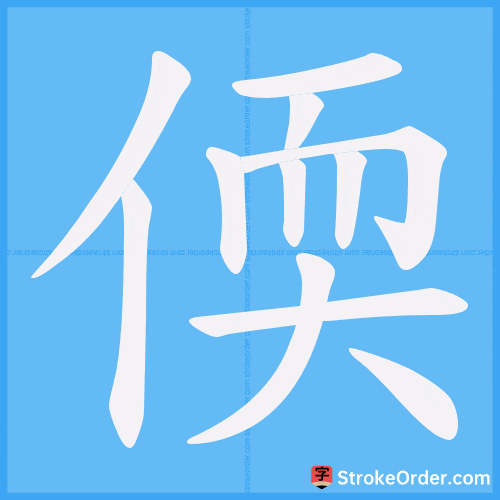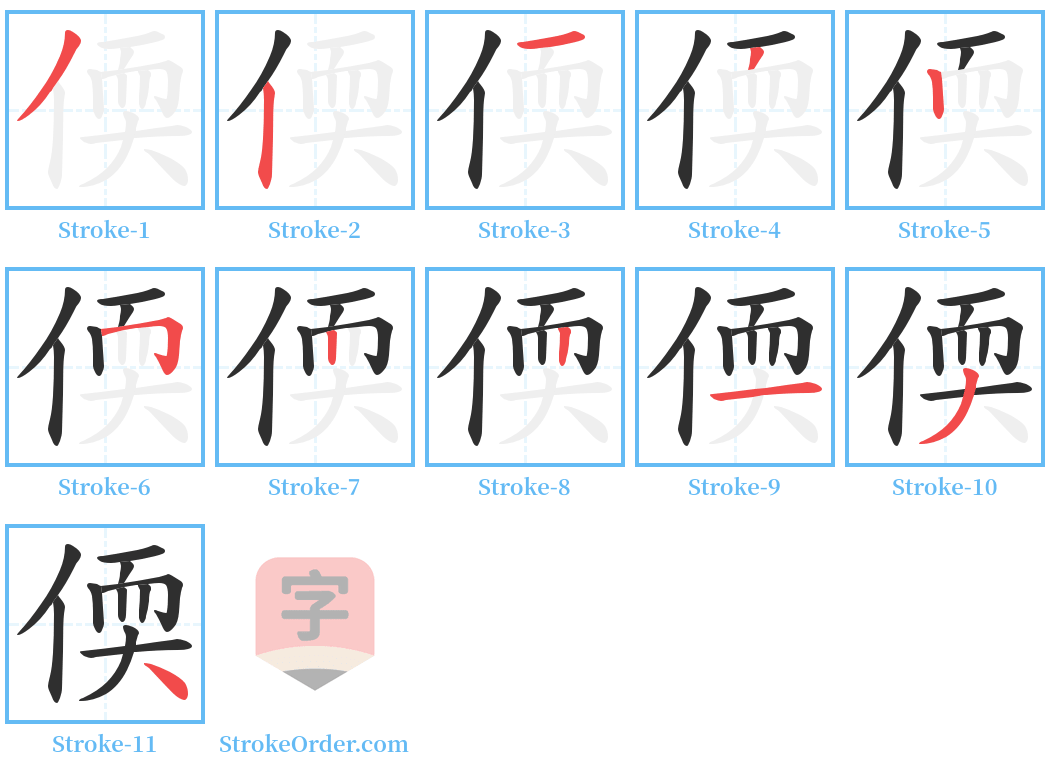偄 Stroke Order
Animated Stroke Order of 偄

Stroke Order Diagrams for 偄

Information of 偄
Pinyin
nuò、 rú
Radical
亻
Strokes
11 strokes
Usage
★★
Definition
Definition of 「偄」:
1. Same as "懦" (nuò). Weak and timid.
同“懦”。懦弱。
《説文•人部》:“偄,弱也。”
"Shuō Wén·Rén Bù": "偄 means weak."
《荀子•大略》:“偄弱易奪,似仁而非。”
"Xún Zǐ·Dà Lǜ": "偄 is weak and easy to be taken, resembling benevolence but not."
王先谦集解引卢文弨曰:“偄與懦同。”
Wang Xianqian's collection states: "偄 is the same as 懦."
《潛夫論•救邊》:“今不厲武以誅虜,選材以全境,而云邊不可守,欲先自割,示偄寇敵,不亦惑乎!”
"Qián Fū Lùn·Jiù Biān": "If we do not strengthen ourselves to punish the captives and choose materials to protect our territory, while claiming the border cannot be defended, seeking to cut ourselves off first, is that not perplexing to show weakness to the enemies?"
唐劉知幾《史通•論贊》:“子長淡泊無味,承祚偄緩不切。”
"Tang Liu Zhiji·Shǐ Tōng·Lùn Zàn": "Zichang is indifferent and tasteless, while Chengzuo is weak and slow, not fitting."
2. Weak and timid.
懦弱。
敬。
Respectful.
3. Same as "儒" (rú).
同“儒”。
4. Same as "儒".
《司隸校尉魯峻碑》:“學為偄宗,行為士表。”
"Sī Lì Xiào Wèi Lǔ Jùn Bei": "Studying is to be the foundation of 億, and behaving is a model for scholars."
《防東尉司馬季德碑》:“偄術顯。”
"Fáng Dōng Wèi Sīmǎ Jìdé Bei": "The arts of 偄 are prominent."